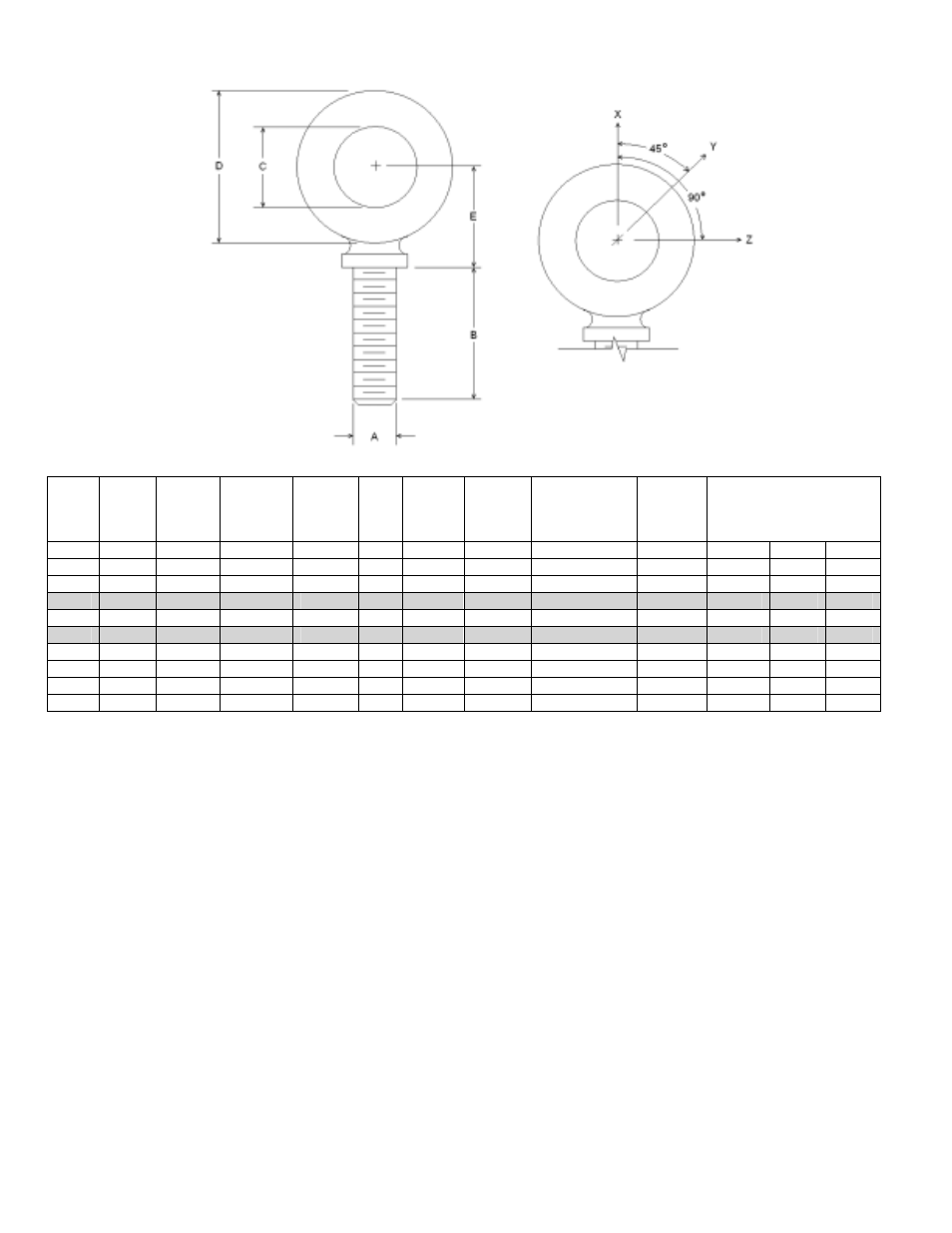Daktronics AB-1600-1.5,2.5 User Manual
Page 100

Copyright
1996-2001
ED-7244
Daktronics, Inc.
Rev. 4 – 14 March 2001
A B C
D
E No.
Min.
Proof
Load
(lbs.)
Min.
Break
Load
(lbs.)
Stocked
Min.
Eff.
Thrd.
Length
Line Loads
Wx
Wy
Wz
1/4 1
3/4 1-3/16 25/32 21 600 2,000 Blank
1/4-20 7/8
400 100 80
3/8 1-1/4 1
1-21/32 1-3/16 23 2,100 5,000 Blank
3/8-16 1-1/8
1,400 350 250
1/2
1-1/2
1-3/16
2-1/16
1-13/32
25
3,900
9,200
Blank 1/2-13
1-11/32
2,600
650
520
9/16 1-5/8 1-9/32 2-13/16 1-17/32 26 4,500 11,830 Blank
9/16-12 1-3/8
3,000 750 600
5/8
1-3/4
1-3/8
2-1/2
1-11/16
27
6,000
14,700
Blank 5/8-11
1-9/16
4,000
1,000
800
3/4 2
1-1/2 2-13/16 1-13/16 28 9,000 21,700 Blank
3/4-10 1-5/8
6,000 1,500 1,200
7/8 2-1/4 1-11/16
3-1/4
2-1/16 29 10,000
30,000 Blank
7/8-9 1-13/16 6,600 1,670 1,330
1
2-1/2 1-13/16
3-9/16 2-5/16 30 12,000
39,400 Blank
1-8
2-1/16 8,000 2,000 1,600
1-1/2 3-1/2 2-9/16 5-1/2
3-5/32 34 27,000
91,300 Blank
1-1/2-6 3
17,800 4,500 3,600
A. Do not use eyebolts on angular lifts unless absolutely necessary. For angular lifts, the shoulder pattern
eyebolt is preferred.
B. Load should always be applied to eyebolts in the plane of the eye, not at some angle to this plane.
C. Shoulder eyebolts must be properly seated (should bear firmly against the mating part), otherwise the
working loads must be reduced to those indicated for regular eyebolts. A washer or spacer may be
required to put the plane of the eye in the direction of the load when the shoulder is seated.
D. No load greater than the safe working load listed in the data table should be used.
E. To obtain the greatest strength from the eyebolt, it must fit reasonably tight in its mounting hole to prevent
accidental unscrewing due to twist of cable.
F. Eyebolts should never be painted or otherwise coated when used for lifting. Such coatings may cover
potential flaws in the eyebolt.
G. To attain the safe working loads listed for regular eyebolts, 90% of the thread length must be engaged.
